Vowel Recognition Normal Vowels Worksheets for Ages 3-8
12 filtered results
-
From - To
Unlock the power of reading with our Vowel Recognition Normal Vowels Worksheets for children aged 3-8! Designed to nurture young learners' understanding of vowels, these engaging worksheets help kids identify and differentiate between normal vowels in a fun, interactive way. Through a variety of activities, such as matching, coloring, and tracing, children will enhance their phonetic skills and build the foundation for effective reading. Our resources target early literacy development, catering to diverse learning styles. Encourage your child’s curiosity and confidence in language with our carefully crafted worksheets, ensuring a joyful and enriching learning experience at home or in the classroom!
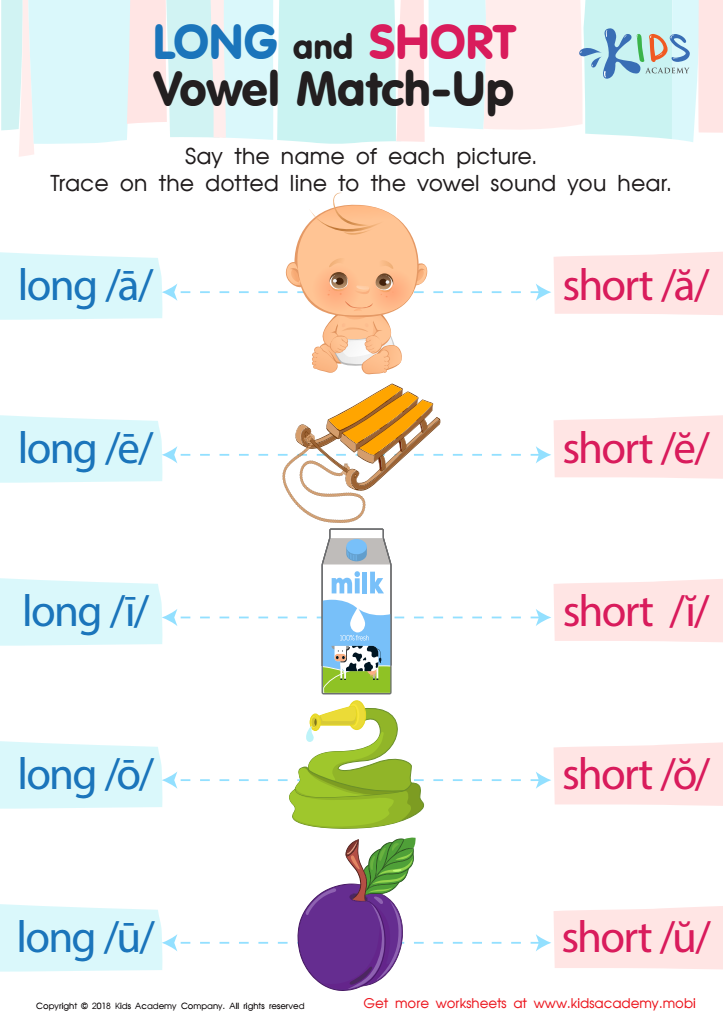

Long and Short Vowel Match up Reading Worksheet


Let's Check Long Vowels: Assessment Worksheet
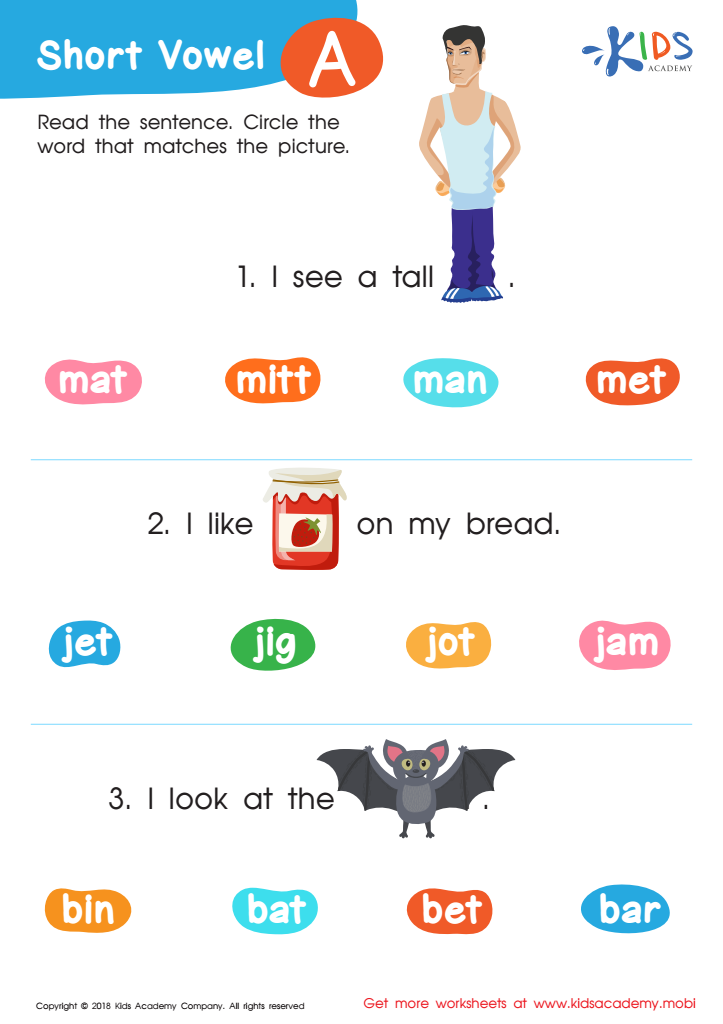

Short Vowel /a/ Worksheet


Short Vowels /e/, /i/, and /u/ Worksheet
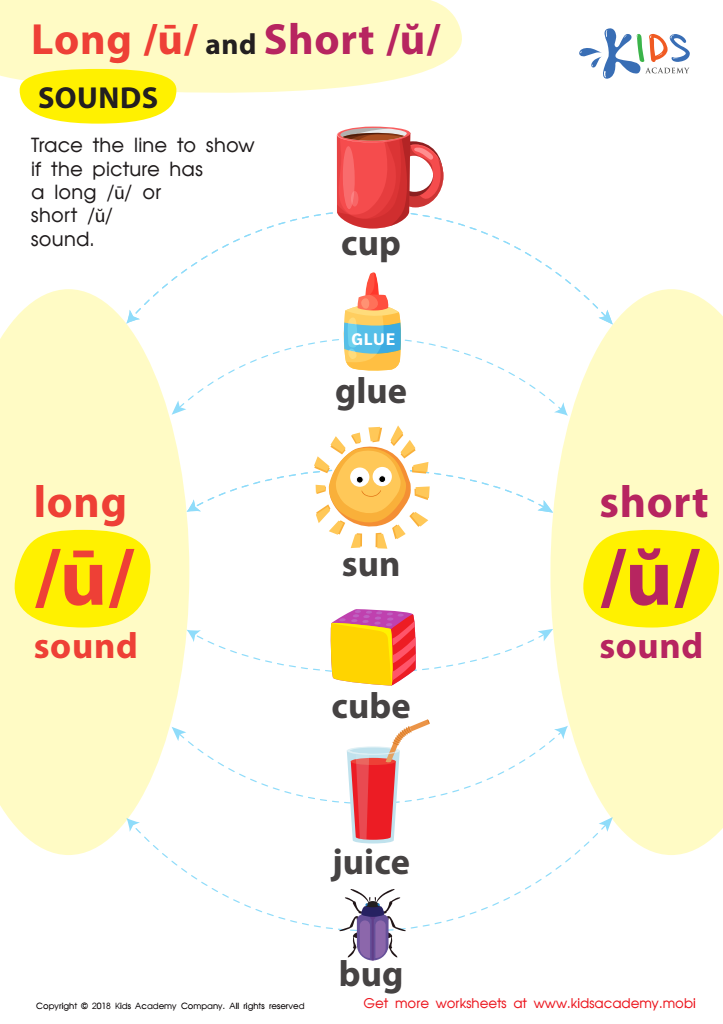

Reading: Long U and Short U Sounds Worksheet


Long Vowel Maze /o/ and /i/ Worksheet


Short Vowel Eggs Worksheet
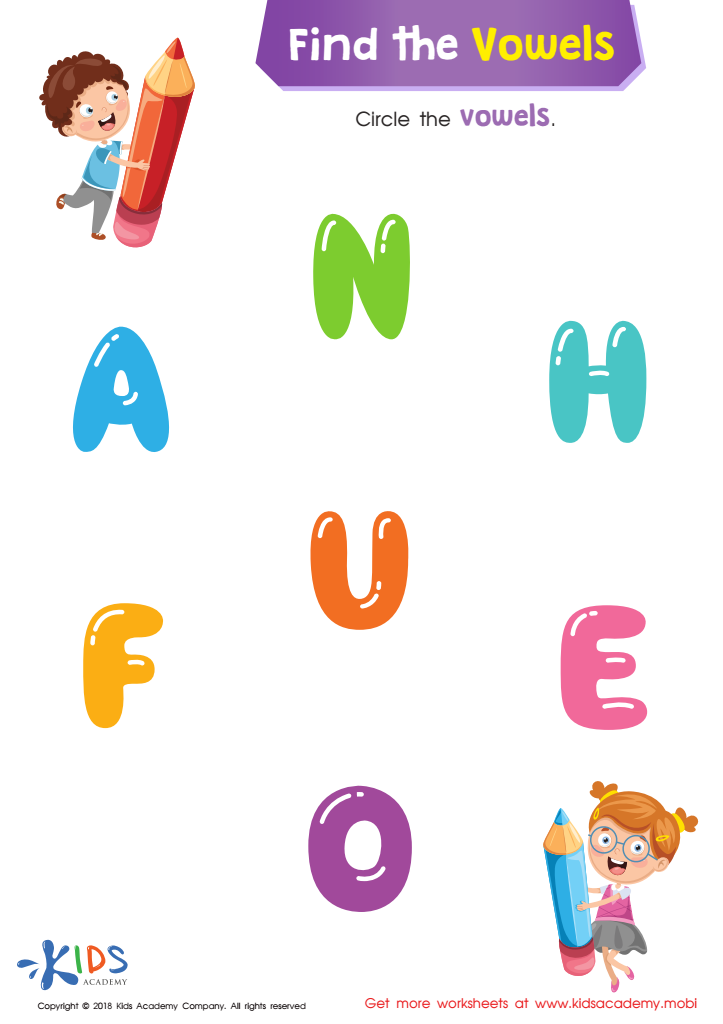

Find the Vowels Reading Worksheet
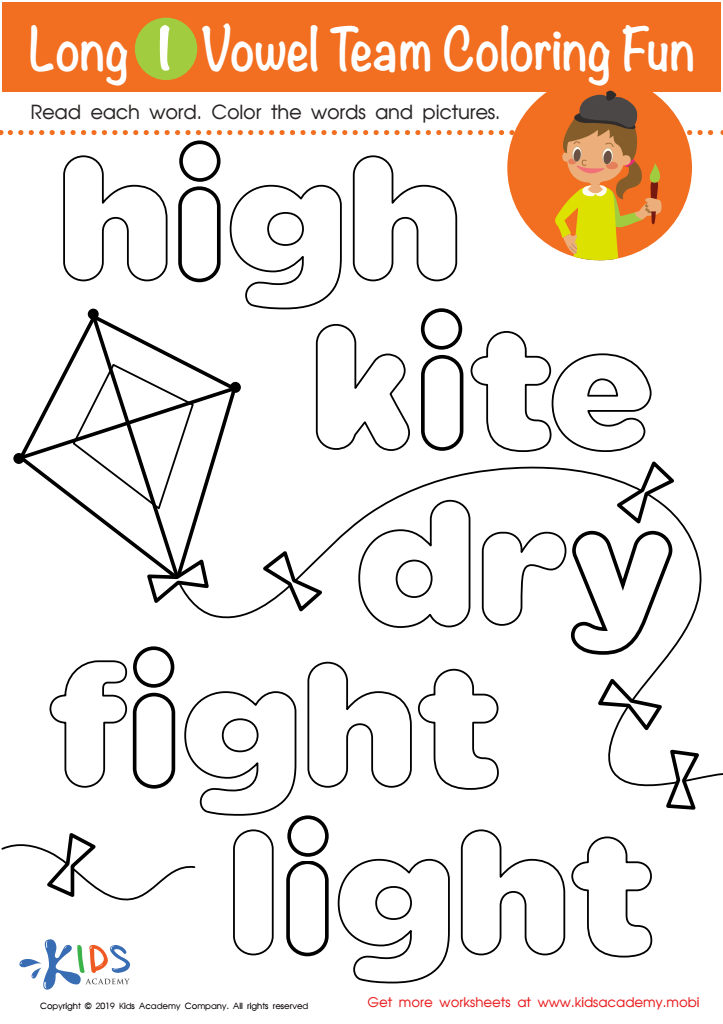

Long I Vowel Team Coloring Worksheet
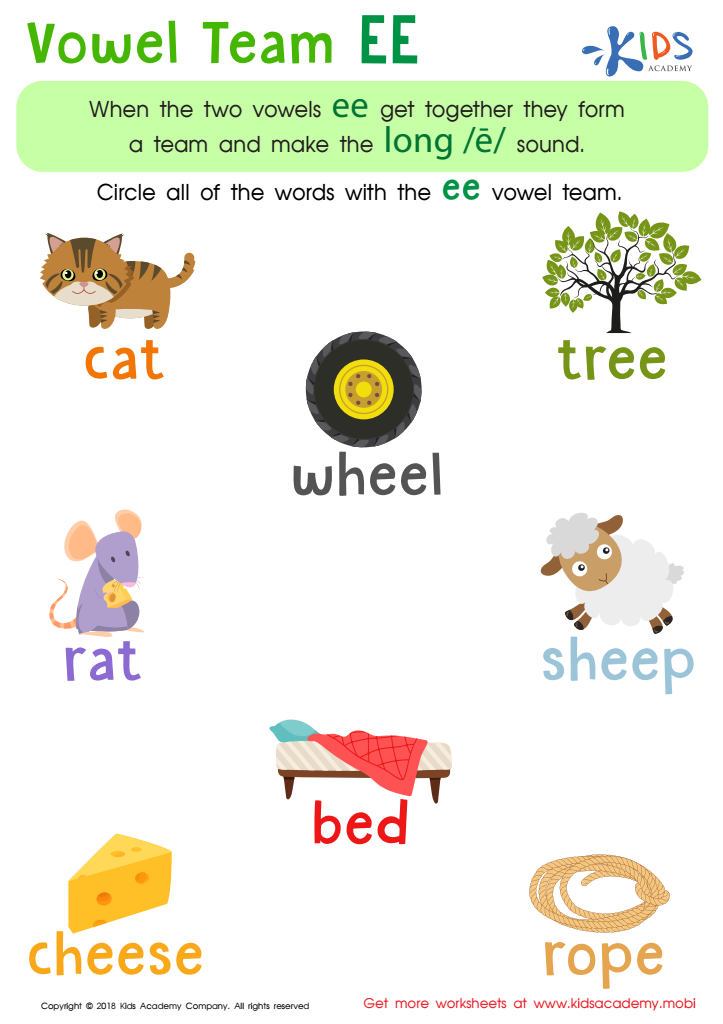

Reading: Vowel Team EE Worksheet
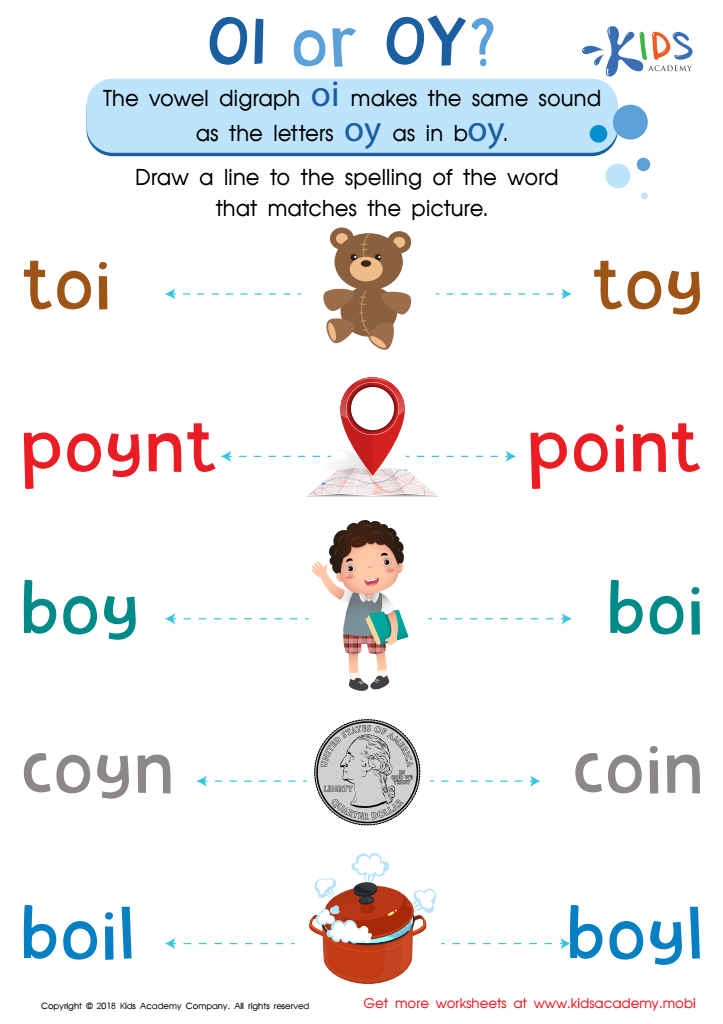

Reading: OI and OY Worksheet


Long and Short Vowel Sentences: Assessment Worksheet
Vowel recognition is crucial for young learners ages 3-8 as it lays the foundation for reading and writing skills essential for academic success. Vowels—A, E, I, O, U—play a vital role in word formation and phonetic understanding. Without a solid grasp of normal vowels, children may struggle with decoding words, leading to challenges in literacy development.
Recognizing vowels enhances children's phonemic awareness, which is the ability to hear, identify, and manipulate individual sounds in spoken words. This skill is especially important in this age group, as early literacy development significantly influences long-term reading proficiency.
Furthermore, teaching vowel recognition fosters confidence and encourages a love for reading. When children can recognize and articulate vowels, they feel more empowered to explore books independently, enhancing their comprehension and engagement with text.
Additionally, parents and teachers can use vowel recognition as an effective tool to support language development through fun and interactive activities, integrating learning with play. By engaging with normal vowels, young learners will not only succeed in early literacy but also build essential communication skills that will aid them throughout their educational journey. In summary, vowel recognition is a fundamental component of early education that parents and teachers should prioritize.

 Assign to My Students
Assign to My Students
















